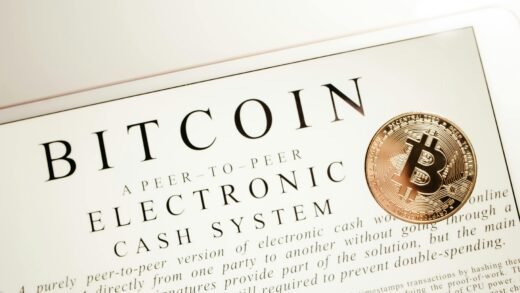Introduction
The demand for safe, reliable and transparent solutions has never been higher in the digital world of today. Unquestionably, one of the most revolutionary aspects to come from this new era is smart contracts which mean that agreements can be executed and enforced without third parties. With businesses and industries going increasingly digital, smart contracts will soon be the go-to technology to automate processes, drive down costs as well as provide trust in digitally executed transactions.

What Are Smart Contracts?
Smart contracts are basically self-executing codes where the terms and conditions of a contract, directly written into code. These contracts are executed on the blockchain network, meaning that as soon as a contract fulfills certain parameters coded within it, the set of actions predefined in those conditions would automatically get launched by this contact. This removes the requirement for intermediaries to certify or execute traditional contracts like brokers and legal professionals, helping reduce complexity as well as time along with cost related to this.
The phrase smart contracts was first used by computer scientist and cryptographer Nick Szabo in the 1990s, however it only now with blockchain technology that we can actually use them. Though these were later featured in platforms like Ethereum known as smart contracts, bringing a plethora of decentralized applications (DApps) and use-cases.
How Smart Contracts Work
Smart contracts: at the heart of them is “if-then” logic. The smart contract executes if the conditions specified are met. For instance, think about paying for a house only after the property changes title hands to you as the buyer. For example, a smart contract could be written to trigger the payment as soon as it verified that ownership of an apartment has been transferred and registered in your name thereby eliminating the role of middle-men suchas escrow agents between you both parties.
Since smart contracts are built on top of blockchain, all actions performed with them earnings will be recorded in a decentralized ledger. This secures the contract, since no one party can edit or alter it after deployment. The elements of a smart contract and how it works.
Smart contracts are deployed on a decentralized blockchain solutions, which means that the data is replicated to multiple nodes and cannot be tampered with.
Security: The smart contract data is all encrypted and thus, most resistant to fraud or hacking horror.
Immutable Code: Smart contracts are deployed as they were written. The agreed upon terms will be locked in to guarantee nothing changes and there is no need for human intervention as the conditions written down must take place.
Automated, Smart contracts are autonomous in the sense that once its conditions set, it attends to all execution automatically without any need for human interactions.
Speed and Efficiency
Processable, Traditional contracts take days and even weeks, they need approval of a few parties which involves manual verification. Any rules built into the smart contract will also automatically execute when those conditions are met. Saving Time, This immediate execution assist in reducing the overall time taken for a specific task and also reduce the agenda of iteration discussions, which is required when there are long emails going back and forth with requirements solutions.
Additionally, processes are automated which make smart contracts capable of processing large numbers of transactions at a faster rate and cost effectively. This is especially useful in industries where speed matters, such as finance and supply chain management.
Use Cases of Smart Contracts
Smart contracts are applicable in various sectors. The most common use casesoreferrer to below:
Finance
While the financial industry has shown more overt interest in smart contracts, particularly with lending, insurance policies and trading. Smart contracts allow transactions to be automatically executed and enforced but without the need for an intermediary such as a bank or clearinghouse.
Prominent use of smart contracts include peer-to-peer lending and borrowing via Decentralized Finance (DeFi). A smart contract allows a user to lend their digital assets, which are automatically used for interest payments and collateral management.
Problems and Perspectives of Smart Contracts
Smart contracts may have a lot of potential solutions, but there are still many hurdles to overcome. One of the major issues is scalability, as current blockchain networks have difficulty processing a large number of transactions quickly. Moreover, the smart contracts legal and regulatory environment is still being developed which can create a gray area as to their enforcement in different jurisdictions for businesses considering using it.
Yes, the future of smart contracts is bright. With many of the technologies still in early stages, we expect future releases to address these technicals issues, Scalability and Security are two big reasons for what blockchain is lacking at this moment. Now that this technology has been developed, it won’t be long before smart contracts are one of the most common tools used by businesses in many different industries.
For Further: Click Here
Conclusion
Largely, this has been adopted by businesses and individuals solutions to execute faster, more secure and zero cost agreements. Smart contracts are automating and decentralizing everything from Finance to Healthcare, Real estate to Supply chain management. As the worlds of digital transactions and decentralized systems continue to expand, it is inevitable that smart contracts will be a significant part in this new era.


